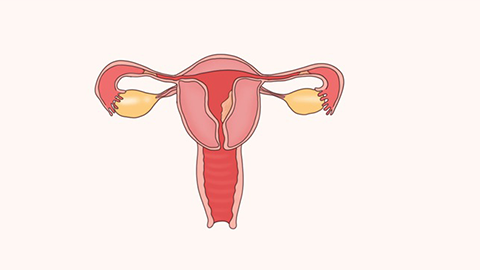What are the symptoms of fallopian tube inflammation?
In general, salpingitis (inflammation of the fallopian tubes) may be caused by unhygienic sexual activity, pathogen infection, or the spread of inflammation from adjacent organs. Symptoms of salpingitis include lower abdominal pain, abnormal vaginal discharge, menstrual disorders, fever, and infertility. If discomfort occurs, timely medical consultation is recommended. Detailed analysis is as follows:

1. Lower abdominal pain
Inflammation may irritate the surrounding tissues, causing lower abdominal pain. The severity of pain varies among individuals, and some patients may experience severe pain that affects normal daily activities and work. This is a primary symptom of salpingitis and is often bilateral, manifesting as persistent dull or aching pain that worsens after physical exertion, sexual intercourse, or around the time of menstruation.
2. Abnormal vaginal discharge
Inflammatory exudates from the fallopian tube inflammation may flow through the fallopian tubes and uterine cavity into the vagina, mixing with vaginal secretions. Additionally, the inflammatory process may alter the secretory function of the vaginal and cervical glands, leading to abnormal vaginal discharge. The discharge may become purulent, watery, or resemble cottage cheese in texture, with a yellow, green, or gray-white color, and may be accompanied by a foul odor such as a fishy or putrid smell.
3. Menstrual disorders
Inflammation of the fallopian tubes can affect the endocrine function of the ovaries, causing hormonal imbalances. In addition, inflammation-induced pelvic congestion and impaired circulation may interfere with the normal proliferation and shedding of the endometrium. A patient's menstrual cycle may start 7 days earlier or later than usual, menstrual flow may increase or decrease, the duration of menstruation may be prolonged, and irregular vaginal bleeding may occur during menstruation, significantly affecting reproductive health.
4. Fever
During fallopian tube inflammation, the body's immune system activates its defense mechanisms. Immune cells recognize pathogens and release cytokines. These cytokines act on the hypothalamic thermoregulatory center, resulting in increased heat production and reduced heat dissipation in the body. Patients may experience fever, which may be accompanied by chills, headache, and generalized body aches, thus affecting normal metabolic processes.
5. Infertility
Fallopian tube inflammation may lead to tissue proliferation and fibrosis, causing adhesions, narrowing, or even complete obstruction of the tubal lumen. Sperm and egg cells may be unable to meet and combine within the fallopian tubes, or the fertilized egg may be unable to pass smoothly through the fallopian tubes to implant in the uterus, potentially leading to infertility.
If related symptoms appear, it is recommended to seek timely medical consultation at a hospital for diagnosis through methods such as hysterosalpingography (X-ray imaging), hysteroscopy, or laparoscopy. After a definitive diagnosis, targeted treatment should be conducted under the guidance of a physician.





